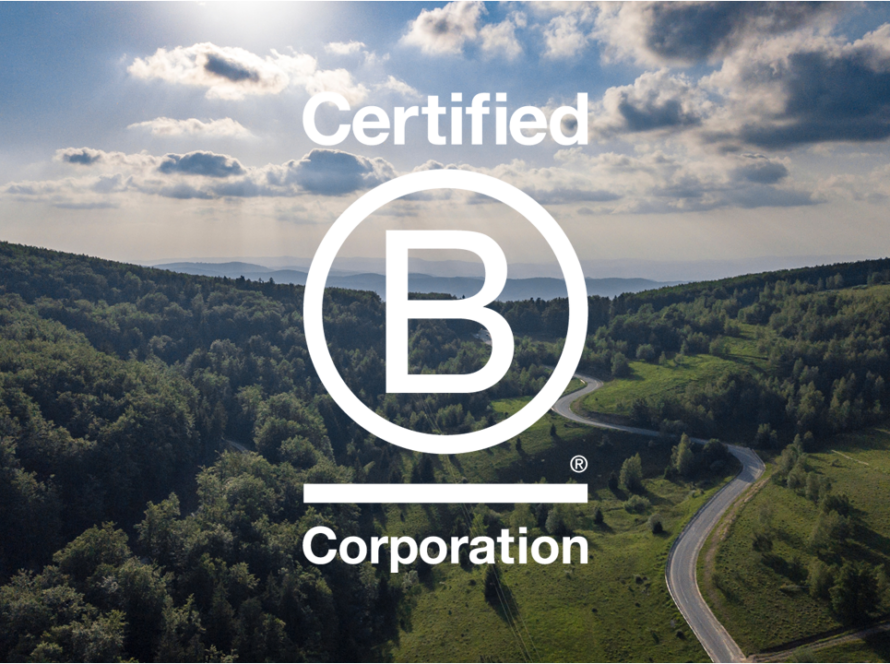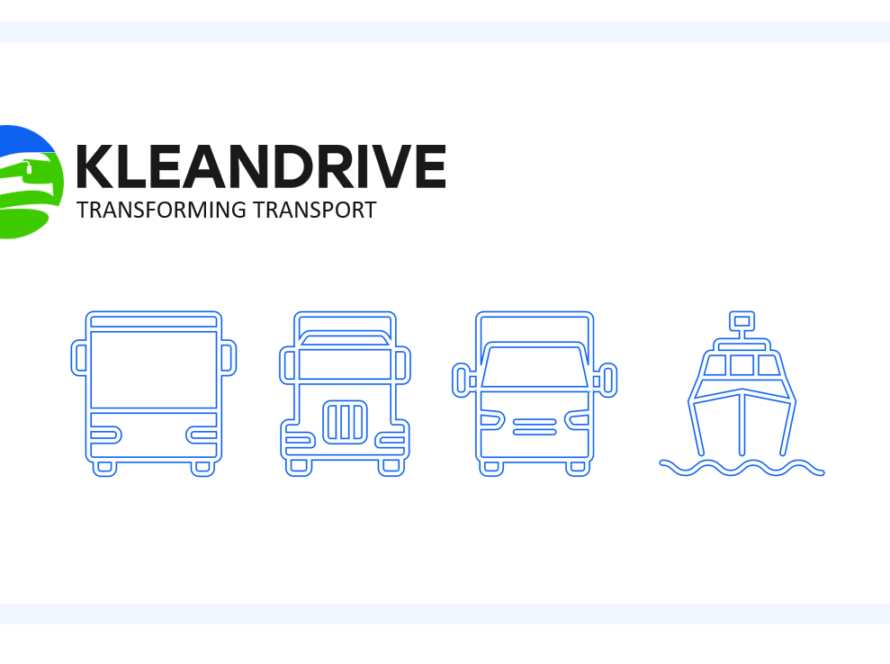- Bus repower expert unveils first images of state-of-the-art platform technology, which can turn any diesel bus, whether single or double decker, zero emission
- Proprietary system combines proven electric powertrain components from leading Tier 1 suppliers with Kleanbus’ own integration technology and software
- Technology agnostic approach allows Kleanbus to leverage the most appropriate and latest power electronics, batteries, and motors, creating e-powertrains tailored to operator needs
-
- Electric repowered buses from Kleanbus cost one fifth of a new electric bus with a third of the operating costs of diesel buses
- Rapid Kleanbus programme can repower an existing bus within two weeks, getting vehicles back into service as quickly as possible
- Kleanbus provides the complete package for operators with the option for repowered buses to be financed with no upfront costs
- Company also facilitates the installation of depot charging infrastructure through its charging partners
- Development prototypes already undergoing extensive testing programme in the east of England
- Pilot programmes with key bus fleet operators to begin in Q4 2022
- Hi-res media imagery: https://bit.ly/Kleanbus
- https://kleanbus.com/
Thursday 1st September 2022: Expert bus repower company Kleanbus today reveals first images of its advanced modular platform technology, which can turn any bus, whether single or double decker, from ICE to fully electric quickly and cost-effectively.
With climate change escalating and poor air quality in cities reaching critical levels, decarbonising transport has become one of the greatest challenges of our time.
Electrification is the most viable way for bus operators to go green, but new electric buses are expensive and can take many months to join a fleet from order placement to delivery.
Repowering – removing the diesel engine or hybrid powertrain from an existing bus, replacing it with a fully electric powertrain – is the fastest and most cost-effective method to transition the UK bus fleet to zero emission, and Kleanbus’ advanced solution can accelerate that changeover thanks to the company’s unique technology.
Joe Tighe, Co-Founder and CEO of Kleanbus said: “With 97% of UK buses powered by diesel engines that emit large amounts of carbon, oxides of nitrogen, and particulate matter – and a staggering 35,000 of them on the road – the country faces a major challenge to rapidly decarbonise this vital transport sector and is struggling to move quickly enough*.
“Replacing these vehicles with new electric buses is very expensive for private companies and government subsidies will take many years given fleet turnover rates. Kleanbus offers a fast and efficient way towards zero-emissions, making buses cleaner, quieter, more comfortable, and more valuable assets for operators.”
Bespoke, state-of-the-art e-powertrain
Combining proven and fully warranted electric powertrain components from leading Tier 1 suppliers with Kleanbus’ own integration technology and proprietary software, Kleanbus’ platform system is technology agnostic, nimble and adaptable. This innovative approach means that Kleanbus can take advantage of the very latest componentry, enabling it to leverage a wide variety of batteries and motors, creating purpose-built e-powertrains tailored exactly to a bus operator’s needs.
The e-motors used by Kleanbus also do not have permanent magnets, so use no rare earth materials at all, demanding less of the planet’s resources and limiting the disastrous impact of rare earth metals production.
From its state-of-the-art 9,000 sq ft facility based in the east of England, the Kleanbus repower programme consists of a full evaluation of the vehicle, removal of its diesel engine and all associated ICE components, scanning and prototyping of the vehicle’s interior, design of a bespoke platform, installation of a new e-drive, build, full testing process and final certification.
Once a bespoke e-drivetrain has been designed and tested it takes less than two weeks to repower an individual bus, getting the vehicle back in service in as little time as possible.
Operating costs are also dramatically lower, at a third of those of a conventional diesel bus, likely to be even greater with the latest new Bus Service Operators Grant (BSOG) Zero Emission Bus (ZEB) incentive of 22 pence per kilometre, factored in.
Complete peace of mind for operators
Electric repowered buses from Kleanbus also cost one fifth of a new electric bus – but thanks to Kleanbus’ partnerships with innovative finance providers, operators can choose several ways in which to finance their vehicle, ranging from paying for the vehicle upfront and leasing the battery, to paying nothing upfront and leasing both the vehicle and the battery. In this way, operators can fund the cost of the repower through operating revenue, maximising the business case.
And thanks to the company’s relationships with charging providers, Kleanbus also arranges for an operator’s depot to be upgraded with appropriate charging technology, enabling them to go electric without having to contact third parties, effectively offering a one-stop shop.
Joe Tighe, Co-Founder and CEO of Kleanbus continued: “I am delighted to reveal first images of our modular repower platform system, which can be applied to any bus. Leveraging the latest in fully warranted and proven components from leading Tier 1s, this technology agnostic solution enables us to create a flexible ‘e-drivetrain in a box’, integrated into any vehicle via our own proprietary software.
“I am hugely proud of our innovative system, but Kleanbus is more than a technology company, we provide a full one-stop-shop to bus operators, with innovative financing and charging as part of the total package, making it easy for them to go zero emission.
“The potential for repowered buses is huge. They could bring about fully electric bus fleets six years earlier than relying on roll out of new zero emission buses alone. This could give a potential saving of over 4Mt CO2 and deliver health benefits of improved air quality sooner – and Kleanbus can play a crucial role in accelerating the transition to a clean future while providing lower operating costs for bus fleets.”
ENDS
Press contact:
Images:
Editors’ notes:
About Kleanbus
Kleanbus’ unique repower programme provides a fast, affordable solution to electrify bus fleets – and one that is and the most environmentally friendly too. The company is committed to using an innovative British engineering expertise, quality locally sourced components and
UK-based manufacturing. Its drivetrain has no rare earth elements, and its battery systems are specifically designed for bus system operations. By providing the best available technology with the most reliable supply chain and excellent customer service, Kleanbus is the partner of choice for rapid, low-cost transition to zero emissions.
Kleanbus’ senior team is made up of subject matter experts with a combined eighty years in powertrain development. Led by serial entrepreneur CEO Joe Tighe, other senior members of the team include Chairman, Terry Spall, 135th President of the IMECHE with 25 years’ senior experience at HORIBA MIRA, alongside Rob Gretton, an engineer with over 30 years’ experience working in drivetrain and power systems, and former TfL and GLA air quality specialist Lucy Parkin, who is the company’s first Director of Environmental, Social and Governance (ESG).
Underlining its commitment to being a force for good, Kleanbus has also achieved pending B-Corporation® status
*The government has committed to funding 4,000 zero emission buses, around ten per cent of the UK’s fleet, but so far there are just 697 ZEBs in service outside London, and funding allocated for a further 2,125. London currently has around 800 ZEBs in service.




